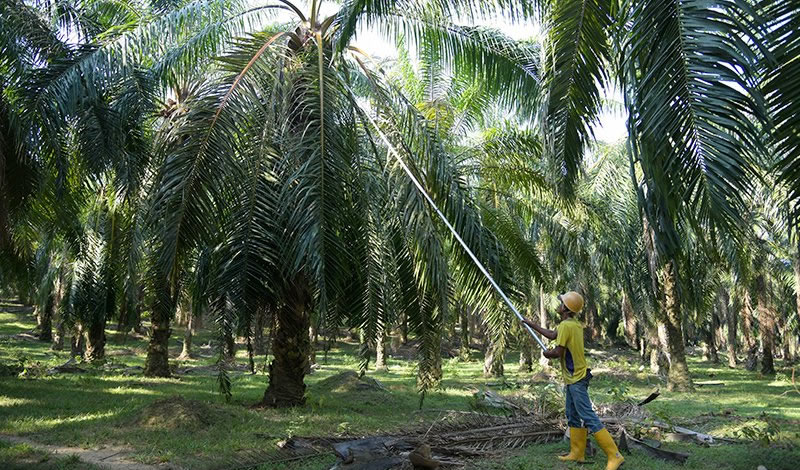
Malaysian Sustainable Palm Oil scheme, abbreviately known as MSPO, is a national scheme initiated by Malaysia for palm oil industry players in the country. The scheme targets to assess and certify the industrial players against the MS 2530:2013 series of standards, which comprises 4 parts, namely
- MS 2530-1:2013 Part 1: General principles
- MS 2530-2:2013 Part 2: General principles for independent smallholders
- MS 2530-3:2013 Part 3: General principles for oil palm plantations and organized smallholders
- MS 2530-4:2013 Part 4: General principles for palm oil mills
The MSPO standards cover seven areas:
- Management commitment and responsibility
- Transparency
- Compliance to legal requirements
- Social responsibility, safety and employment conditions
- Environment, natural resources, biodiversity and ecosystem services
- Best practices
- Development of new plantings (not applicable for Part 4)
In February 2017, Ministry of Plantation Industries and Commodities had made certification compliance of MSPO mandatory by end of year 2019, aiming towards branding Malaysian palm oil as sustainably produced and safe.
MSPO standard requirements aim to help organizations
- Promote and implement sustainable agricultural practices;
- Achieve better yield;
- Identify and trace sources of raw material (fresh fruit bunches) right to end-products;
- Take care of workers’ welfare in the industry;
- Comply to applicable regulatory and statutory requirements; and
- In overall, to elevate palm oil industry of the country to global standards.
PCI is one of the pioneer certification bodies in the country who achieved accreditation by the Department of Standard Malaysia (DSM) to provide assessment and certification for MSPO scheme.
